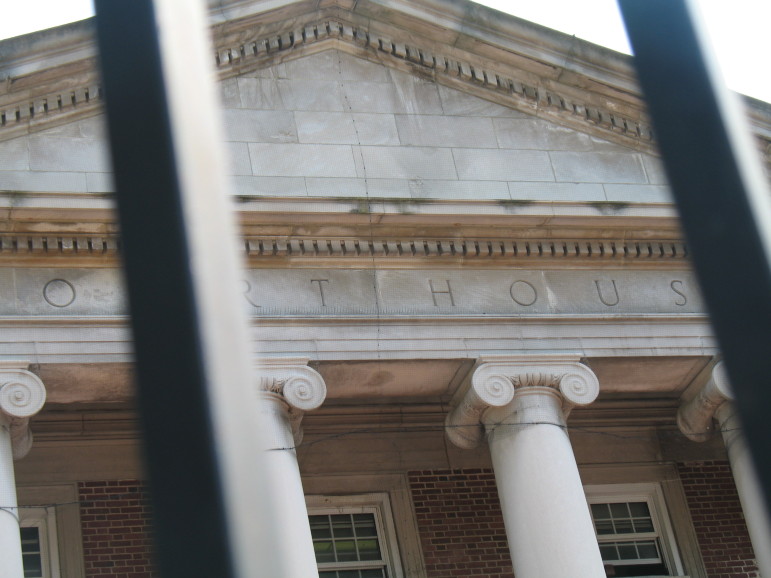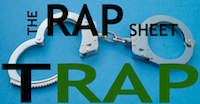
Jarrett Murphy
While rap sheets record any arrest on fingerprintable charges, criminal history forms reflect proceedings in courthouses like the Criminal Court in Staten Island.
What is a rap sheet? Formally, they’re Records of Arrest and Prosecution, better known by their apt acronym: RAP sheets. These are official records of an individual’s encounters with the criminal justice system, based on fingerprints taken at the time of arrest. They include arrests as well as convictions.
Who has a rap sheet? Anyone who has been arrested and fingerprinted, whether or not they have been convicted of a crime. In New York State that’s an estimated 7.1 million people.
Who issues them? The official custodian is the New York State Division of Criminal Justice Services (DCJS) in Albany, which tracks all fingerprint-based criminal encounters in the state. (Arrests outside of New York and federal cases are not included; the FBI has its own rap sheets consisting of information from all jurisdictions.)
What’s on them? Details of all arrests, warrants, charges and their disposition in court. The rap sheet provided to an individual or his/her attorney (but not others – see below) will also include Youthful Offender adjudications, sealed cases terminated in the individual’s favor, and sealed noncriminal convictions.
How do you get them? While the general public cannot access or obtain rap sheets concerning other people, DCJS will provide a full rap sheet to an individual or his/her attorney if the individual provides a set of fingerprints. Certain government employers and nonprofit organizations licensed or regulated by the state may also obtain limited rap sheet information (not including sealed matters). You can request a copy of your own rap sheet. There’s a charge of $60.75, although fees may be waived based on income. People incarcerated for 45 days or more can request a free copy while incarcerated. Write or call: NYS DCJS Record Review Unit, 80 South Swan Street, Albany, NY 12210. Telephone: 518-485-7675 or 800-262-3257. Email: RecordReview@dcjs.state.ny.us. Low-income individuals may contact any of the organizations on the Resource Guide for assistance.
For more details, click here.
Who else sees rap sheets? Only agencies with authority granted by law are allowed to obtain rap sheet information. These agencies do not see sealed information. Examples of agencies with statutory authority include licensing boards, as well as agencies that license or regulate child-care and home health care agencies, group homes and programs for developmentally disabled individuals.
What’s a criminal history record search (CHRS)? This is different from a rap sheet, and is issued by the state’s Office of Court Administration (OCA) to anyone willing to pay the $65.00 fee. A CHRS is based on court records, not arrests and fingerprints. They will not include information on arrests that did not lead to prosecution or information about noncriminal convictions, but they may contain other sorts of mistakes.
How do you get a CHRS? A CHRS may be ordered online.
Applications can also be mailed or delivered in person to: NYS Office of Court Administration, Criminal History Record Search, 25 Beaver Street, Rm. 840–Front Desk, New York, NY 10004.
For more information, see these guides from The Legal Action Center:
–Your New York Rap Sheet: A Guide to Understanding and Correcting Your Criminal Record.
–Know Your Rights: Understanding Juvenile and Criminal Records and Their Impact on Employment in New York State
This story is part of a series by
a class on urban investigative reporting at
the City University of New York Graduate School of Journalism
taught by Errol Louis and Tom Robbins,
who served as editors.
* * * *









